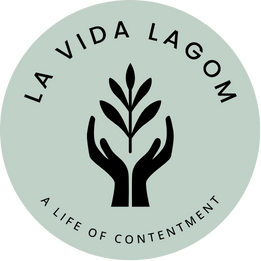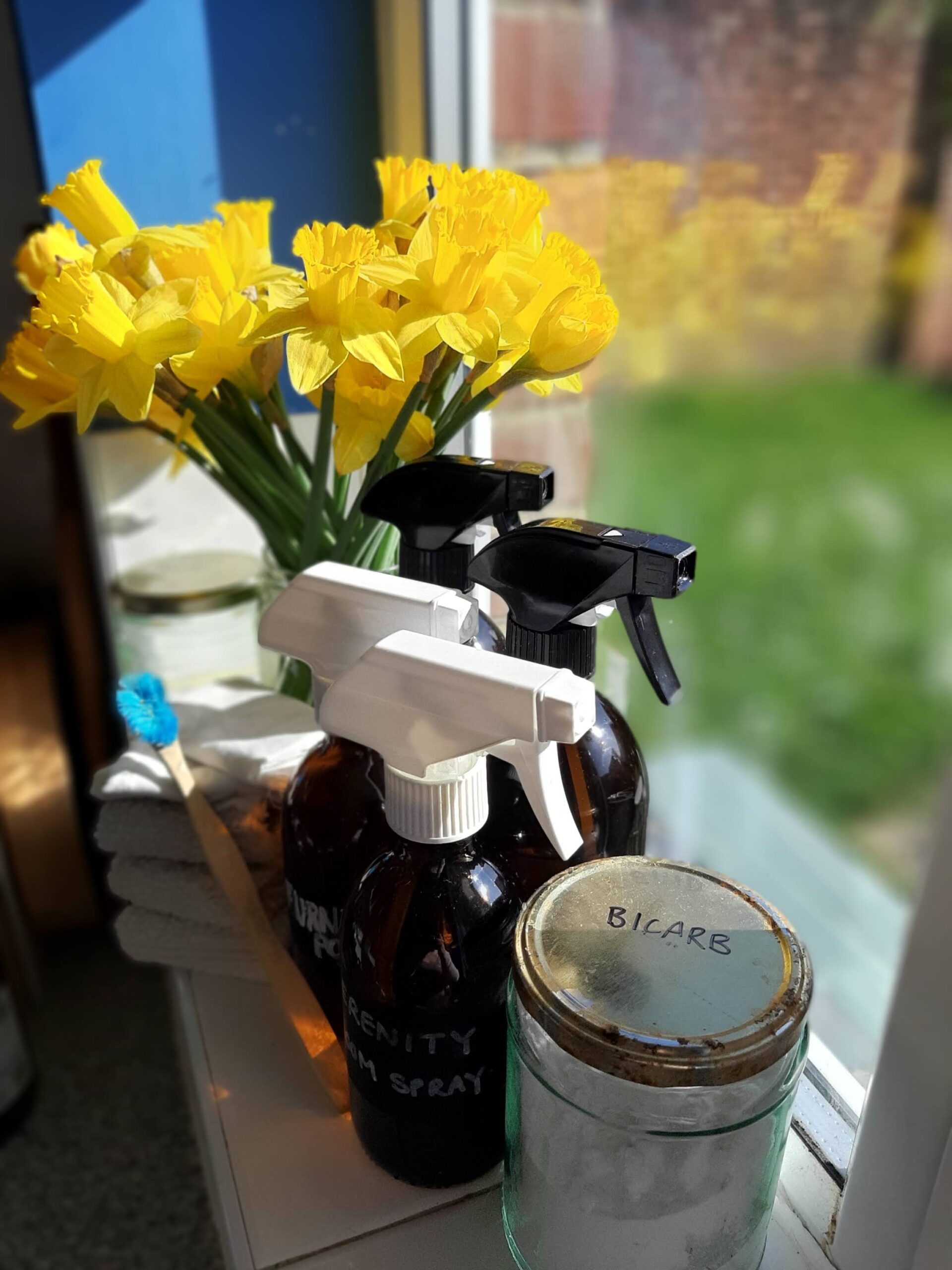We’ve not blogged for a few weeks – this lock down has been hard going and the last few weeks have seemed the hardest – we’ve needed to give our bodies and minds time to rest. But this week feels different – the sun has been shining, the temperature is slowly rising, and Spring is definitely on the way!
So with Spring fast approaching we thought we’d share our top tips for undertaking a sustainable and ‘lagom’ Spring clean.
1. Declutter
The less we own the less we have to dust!
It is always best to de-clutter before we clean and organise – when we get rid of the excess, we are left with just what we need and what brings us happiness.
Take a read of our blog – top 5 things to de-clutter and our environmental wellbeing page for tips on de-cluttering.
2. Re-use what you already have
Before you buy new cleaning materials consider if you can re-purpose anything you already have. Some of the items we have re-purposed for cleaning are:
- Old toothbrushes – great for getting to those hard-to-reach areas such as around the taps and plug hole
- Old towels – cut up into smaller squares are great for dusting and cleaning
- Old bed sheets – cut up make great polishing clothes for mirrors and windows
3. Make your own cleaning products
Making your own household cleaners doesn’t have to be difficult.
One of the best plastic free, chemical free products we use for cleaning is bicarbonate of soda. We pick it up from our local refill store, but it can be purchased plastic free in many supermarkets.
Bicarb is great for removing soap scum from sinks and baths (especially if you use soap bars), just add a little to a damp cloth (we use our old cut up towels) and give it a scrub – the soap just lifts off and can easily be rinsed away.
You can also use Bicarb with a little essential oil as a great carpet cleaner (anyone remember shake and vac?)
We use a white vinegar and water mix (in a glass pump bottle) for mirrors and windows – give it a little spray and then use an old bedsheet to polish it up.
We also make our own furniture polish with olive oil and white vinegar – just add some drops of essential oil to get rid of the vinegar smell.
We buy our essential oils from DoTerra and they have lots of home make cleaning recipes on their website. If you’re interested to learn more about using essential oils in your home check out our friend Georgia Mullis who is a DoTerra leader and wellness advocate.
4. Buy environmentally friendly cleaning products
If you don’t have the time, energy or inclination to make your own cleaning products then aim to purchase sustainable, environment friendly cleaning products. Some of the products we use are:
- SMOL – We use their dish washer tablets and non-bio detergent pods – both are delivered to our house – you can define how regularly you receive them – they are plastic free and we believe they work better than other high street brands we have purchased in the past
- Iron & Velvet – We purchased the all-purpose cleaner and he floor cleaner – they were delivered to our house – plastic free and you can use old, empty spray bottles you already have which is a great way to recycle too
We also purchase washing up liquid, laundry conditioner and multi-purpose cleaner from our local refill store, in addition glass bottles for making our own cleaners, Ecoconut dish scrubbers and wooden toilet brushes.
If you don’t have access to a local refill store there are increasing numbers of on-line companies that supply plastic free cleaning products such as fill – a UK based company making eco cleaning and laundry products.
5. Share the chores
Living lagom is all about equality and sharing the load. Therefore, when it comes to cleaning why not share the chores and have each household member be responsible for a specific chore or cleaning a certain room. If tasks are divided effectively (preference not gender) and each person is trusted to get on with it, it can lead to a household where everyone contributes, has a lagom amount to do and can enjoy a balanced way of life.
You can even get kids involved with activities such as keeping their bedrooms tidy, putting their dirty laundry in the wash basket and loading the washing machine – you may have to reward them to get them in the habit to start with, but teaching children to take responsibility for their own chores from an early age will set them up to be better partners in adult life.
Do you have any tips for sustainable cleaning and getting the whole family involved? If so let us know below in the comments.
Want to know more about living lagom?
Take a look at our wellbeing pages, follow us on Facebook or Instagram, take a read of our other blog posts or feel free to reach out via our contact page.

